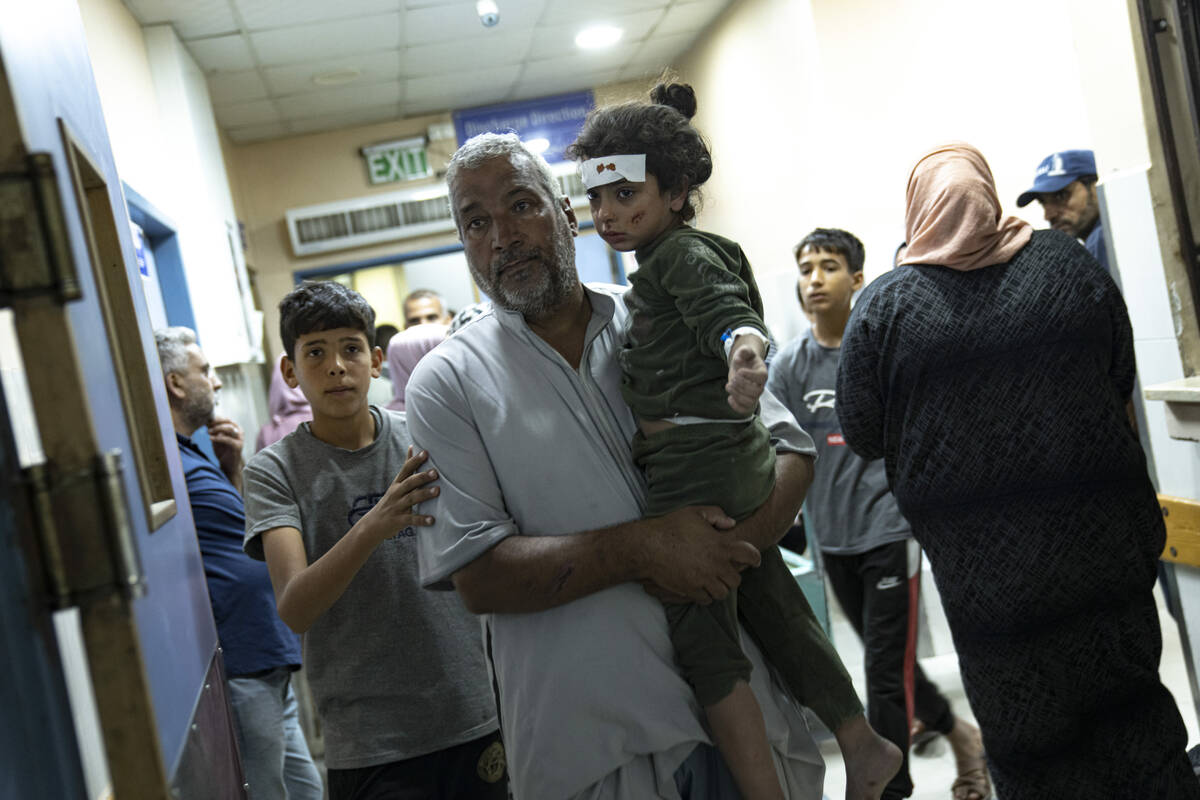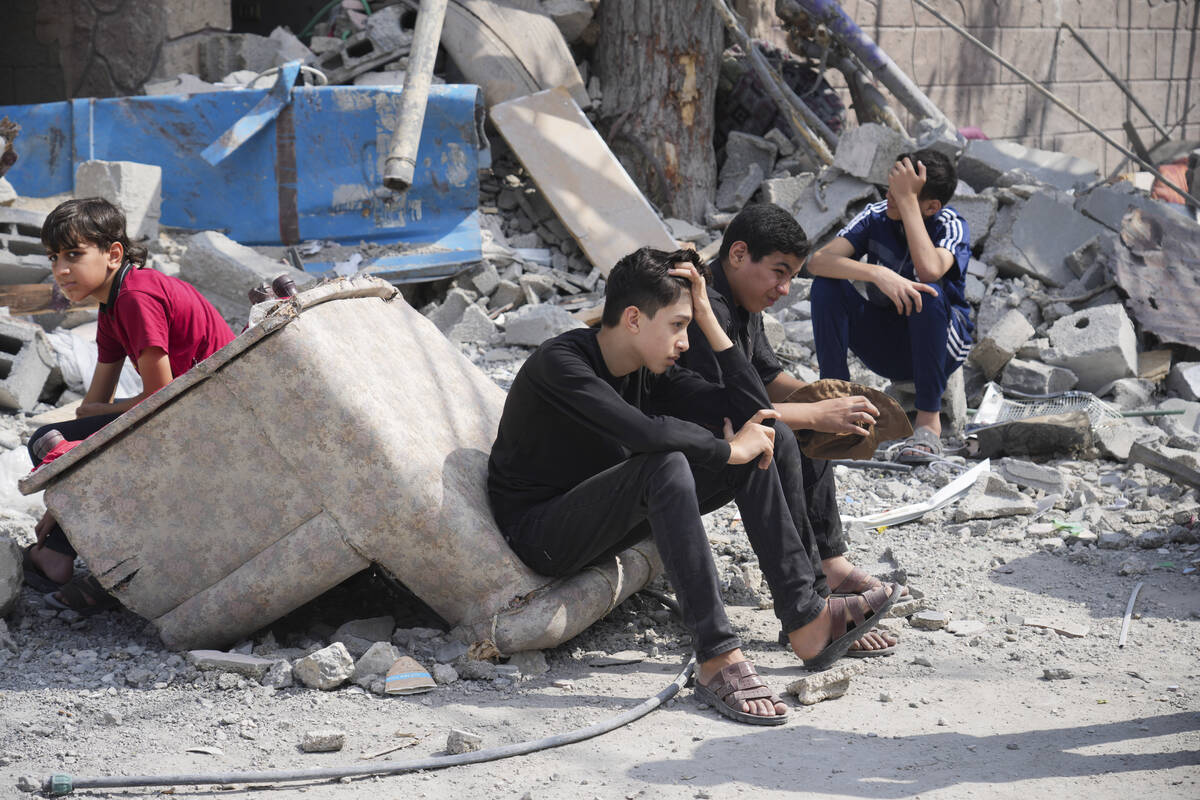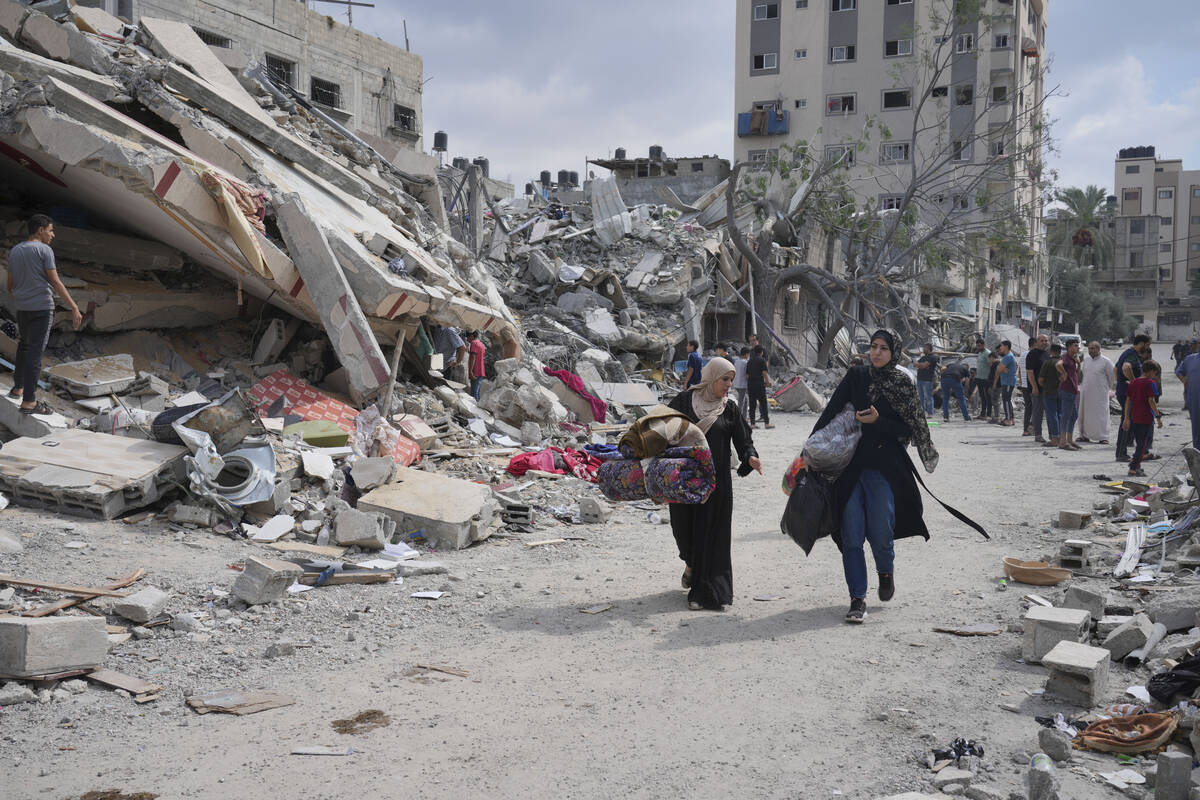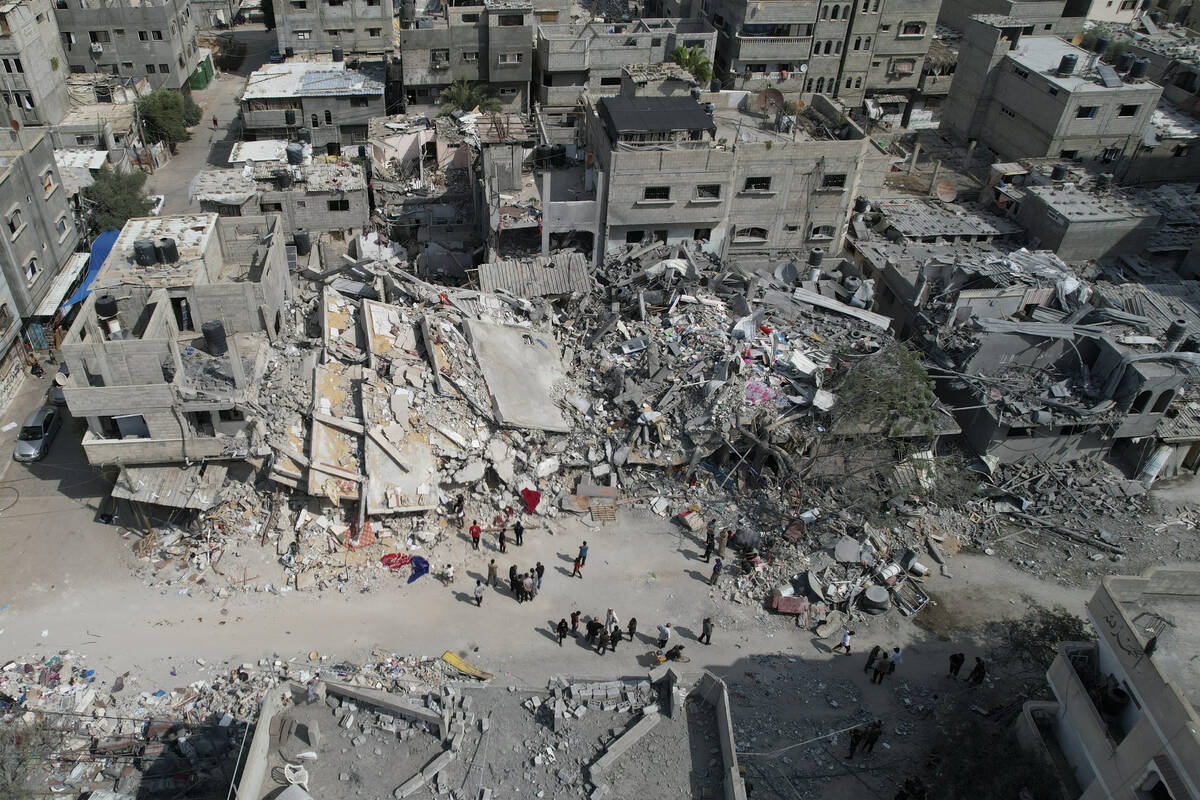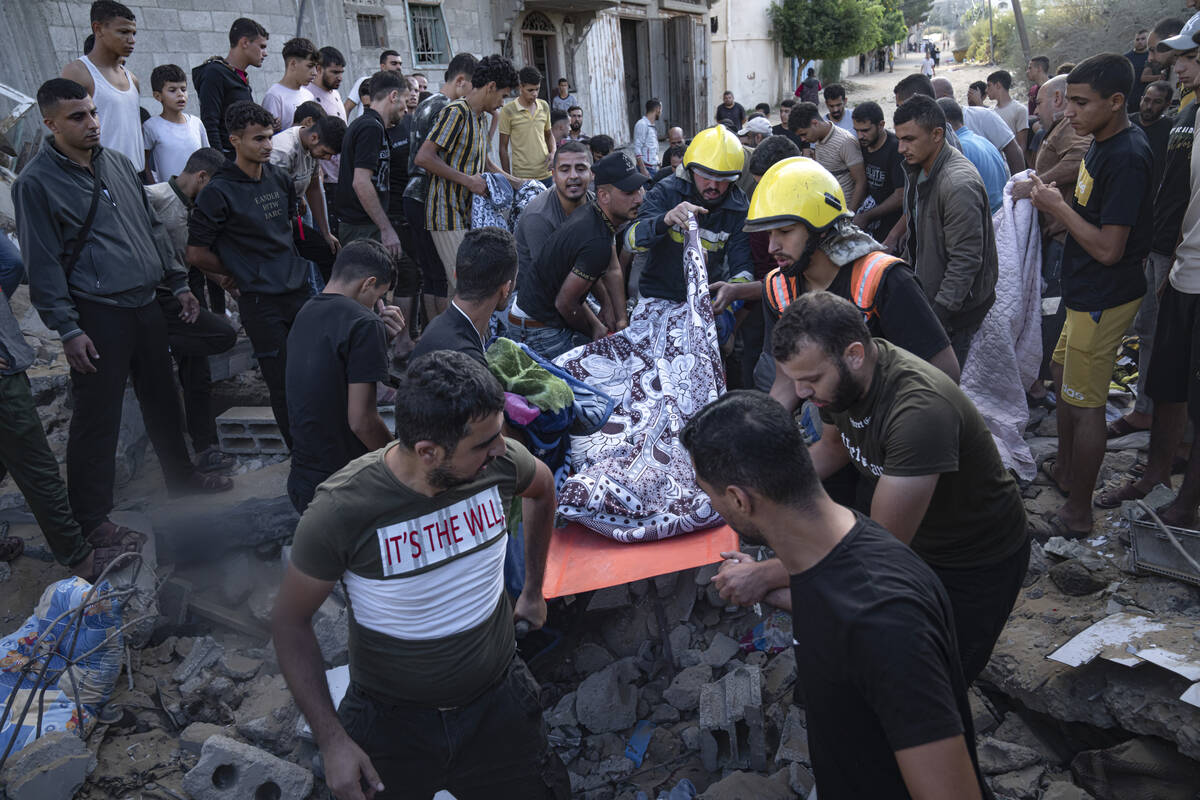Netanyahu warns Hezbollah to stay out of war: ‘Don’t test us’
Monday updates on the war in Israel:
Israeli Prime Minister Benjamin Netanyahu has warned Hezbollah terrorists in Lebanon and their Iranian backers that they will pay a high price if they become involved in the country’s war with Hamas.
Speaking to the Israeli Knesset on Monday, Netanyahu warned Iran and Hezbollah, “Don’t test us in the north. Don’t make the mistake of the past. Today, the price you will pay will be far heavier,” referring to Israel’s 2006 war with Hezbollah.
With a ground invasion of Gaza expected, Israel is preparing for the potential of a new front opening on its northern border with Lebanon, where it has exchanged fire repeatedly with the Hezbollah. The military has ordered residents from 28 Israeli communities close to the border to evacuate.
Cardinal offers hostage exchange
ROME — The Roman Catholic Church’s top representative in the Holy Land has said he will offer himself in exchange for Hamas’ hostages if it would help bring children home.
Cardinal Pierbattista Pizzaballa’s offer wasn’t a formal proposal but a response to a journalist’s hypothetical question. It was unlikely to be considered seriously by Hamas, which is believed to be holding at least 199 people in Gaza after its Oct. 7 attack Israel.
Asked on a Zoom briefing Monday with Vatican-based reporters if he would be willing to offer himself for the hostages, Pizzaballa said: “If I’m available for an exchange? Anything, if this could bring about the freedom of children, no problem. My absolute willingness.”
Pizzaballa has been criticized by Israel for an initial responses to the Hamas attack by Christian leaders in Jerusalem. The patriarchs’ statement made no explicit mention of the Hamas attack, restating in general terms its condemnation of any act that targets civilians.
France: Hamas not allowing Gaza evacuations
PARIS — France says Gaza residents must be allowed to leave, accusing Hamas of preventing them from doing so, and wants the blockade of Gaza eased to allow in humanitarian aid.
The message was delivered Monday by French Foreign Minister Catherine Colonna on a visit to Egypt, following talks the previous day with officials in Israel. “The blockade doesn’t respect humanitarian law,” she said. “Humanitarian aid must be permitted to enter Gaza, because it’s unacceptable to leave women, men, children who aren’t responsible for Hamas’ crimes suffering like this.”
Fuel trucks enter Egypt
Oil tankers bearing United Nations flags have crossed into Egypt from Gaza to pick up fuel supplies for the besieged enclave.
The trucks were led across the Rafah border by a U.N. escort vehicle as people stood in line in hopes of crossing.
Hospitals in Gaza are expected to run out of generator fuel in the next 24 hours, endangering the lives of thousands of patients, according to the U.N. Gaza’s sole power plant shut down for lack of fuel after Israel completely sealed off the 25-mile long territory following the Hamas attack.
Palestinians lack food, water
Across besieged Gaza, food shortages are causing desperation. With trucks full of humanitarian goods idling at the Rafah border, unable to get through, many in Gaza not only have no running water but also don’t have enough food.
Residents said they ate whatever morsels they could find in their fridge from before the war and were scared about the coming days. The worsening shortages were most visible in U.N. shelters, where hundreds of thousands of Palestinians have taken refuge after fleeing intensifying bombardment, and in houses where dozens of family members were sheltering.
Hourslong lines snaked from bakeries, where Palestinians waited anxiously to get whatever basic food they could to distribute among their relatives.
“I have been waiting for 10 hours to get bread … and of course this amount is not enough,” said Ahmad Salah in Deir al-Balah, where he said he had to feed 20-30 family members. “This is a painful suffering for us.”
Blinken in Israel for more meetings
U.S. Secretary of State Antony Blinken has renewed pledges of American support for Israel in its war against Hamas as he returned to the country for the second time in less than a week.
In Jerusalem on Monday to consult with Prime Minister Benjamin Netanyahu and other senior officials, Blinken also briefed them about discussions he had with Arab leaders on the conduct of the war and the need to protect civilians.
Blinken “underlined his firm support for Israel’s right to defend itself from Hamas’ terrorism and reaffirmed U.S. determination to provide the Israeli government with what it needs to protect its citizens,” State Department spokesman Matthew Miller said in a statement.
Blinken also discussed U.S. efforts with the U.N. and others to provide humanitarian assistance to civilians, and the U.S. commitment to helping in attempts to rescue nearly 200 hostages held by Hamas.
Blinken arrived after a six-nation tour of Arab states during which he heard the concerns of Arab leaders about an impending Israeli ground invasion of Gaza causing a humanitarian catastrophe for Palestinians and possibly igniting a broader regional conflict.
Blinken has twice extended his diplomatic mission and plans to return to Jordan after his visit to Israel.
Doctors staying in Northern Gaza
The aid group Doctors Without Borders, or MSF, says many of its personnel in northern Gaza have decided to stay in hospitals to continue to treat the wounded.
“Hospitals are overwhelmed,” said Claire Magone, general director of MSF France, in a video statement. “There are no more painkillers now. Our staff tells us about the wounded screaming in pain, the injured, the sick who cannot get to the hospital, and the terror of finding themselves bombed in a few hours.”
She said the situation in southern Gaza is also difficult. “People are crowded into makeshift precarious camps, where access to water and food is extremely problematic,” she said. “Our teams report that accessing water is difficult, and is getting worse by the hour. Gaza’s water shortage has now reached a critical threshold.”
U.N. Security Council resolutions
The U.N. Security Council is set to vote Monday evening on dueling proposed resolutions on the Israel-Hamas war. A Russian proposal calls for a cease-fire while a Brazilian draft seeks “humanitarian pauses” to let aid flow and urges Israel to rescind its order for the evacuation of northern Gaza.
Either draft, if adopted, would mark the first collective statement on the war from the U.N.’s most powerful organ.
Both draft resolutions, obtained by The Associated Press, call for releasing all hostages. In somewhat different language, both also condemn violence toward civilians, express concern about the humanitarian situation in Gaza and seek the provision of food, fuel and other aid.
But the differences are significant. Ahead of an expected Israeli ground offensive in response to Hamas’ attack earlier this month, Russia’s proposed resolution calls for a “humanitarian cease-fire.” The Brazilian draft instead calls for “humanitarian pauses” and encourages establishing aid corridors and a notification mechanism to protect U.N. facilities and humanitarian sites and aid convoys.
Brazil’s draft presses Israel to call off its evacuation order — which the U.N. and aid groups have said would cause immeasurable human suffering — while Russia’s proposal speaks of “creating conditions for the safe evacuation of civilians in need.”
The council has become increasingly divided amid Russia’s war in Ukraine. Russia is a veto-wielding member. Brazil, a two-year member without a veto, currently holds the rotating presidency.




